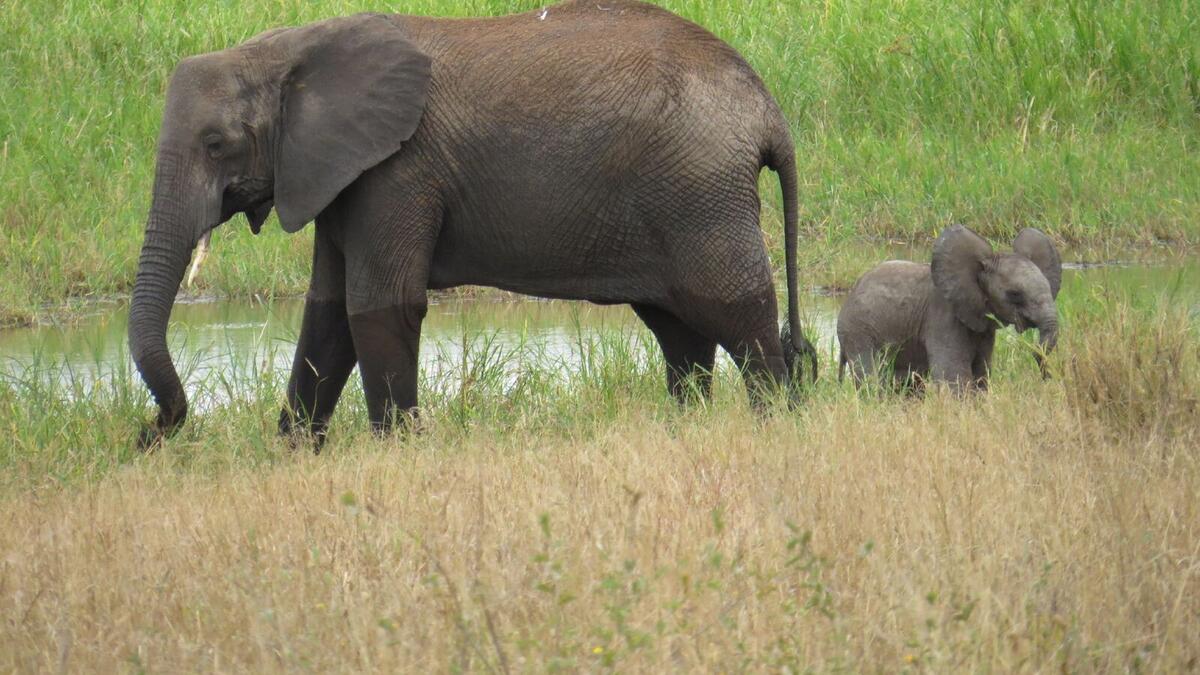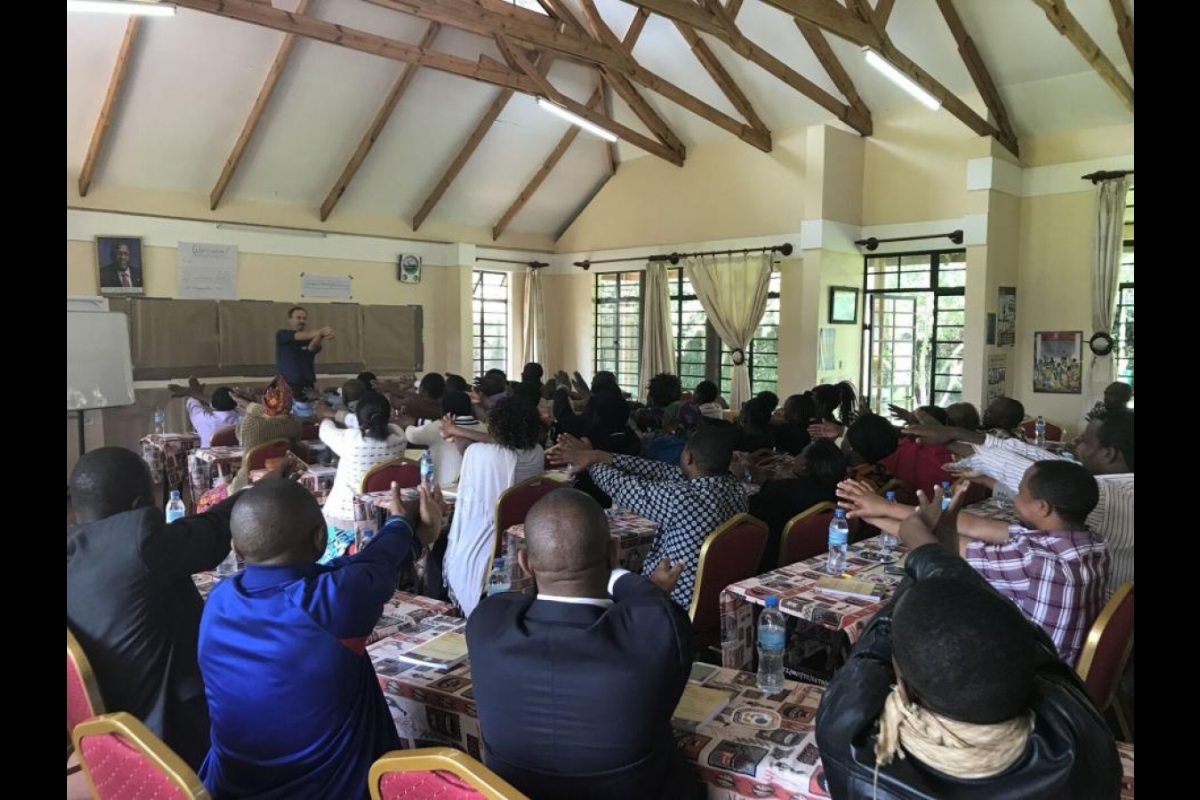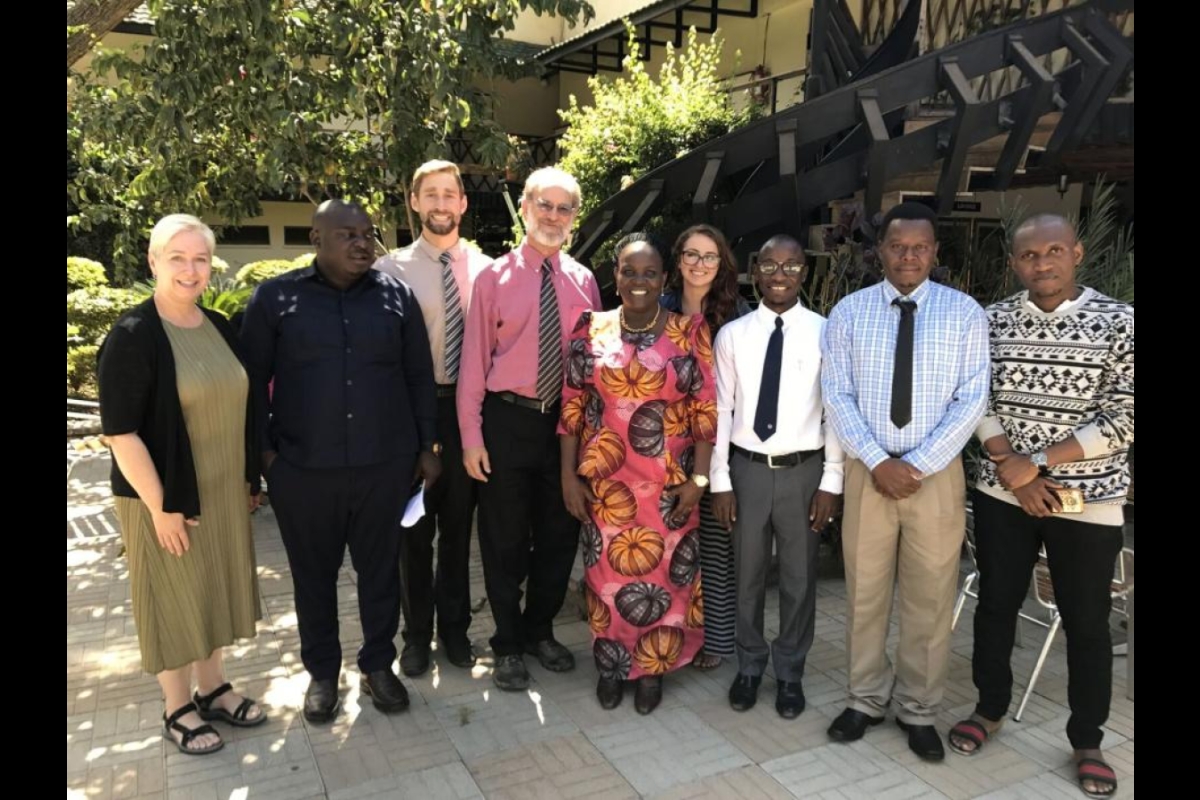Sometimes Arizona State University’s mission is carried out far beyond the boundaries of campus.
This summer two ASU faculty members — Lindy Elkins-Tanton, director of the School of Earth and Space Exploration, and Bert Jacobs, director of the School of Life Sciences — went to Tanzania, where they led a team conducting a two-day teaching workshop for 102 secondary school teachers.
What they found was, despite being on the other side of the globe in sub-Saharan Africa, they are part of a global community.
“What warmed my heart and made my hair stand up is they all want the same thing we want for our students,” Elkins-Tanton said. “We want our students to become passionate, connected, energetic, fair people who solve problems and have a sense of how to do it. ... We really are a global community with a purpose.”
Jacobs, co-founder of a nonprofit called HEAL International that has been teaching HIV/AIDS prevention in rural Tanzania for 10 years, arranged the workshop.
“Most of our work revolves around service learning,” Jacobs said. “We take ASU students to Tanzania, and they work with African students and teach basic public health and AIDS / HIV prevention.”
This is the first year HEAL International has done a teachers’ workshop.
“Since we had Lindy; myself; her husband, James; her son, Turner — all established people — we felt like we had a better chance of having an impact on teachers,” Jacobs said.
The June workshop was co-sponsored by Beagle Learning, a learning platform for managing online discussion- and question-based classes founded by Elkins-Tanton; her husband, James, a mathematician and teacher; and her son, Turner Bohlen, a technologist.
“We have this vision that I hold in common with my position at ASU and Beagle Learning: We want to help create a next generation of students who are passionate about learning,” Elkins-Tanton said.
She worked up a curriculum and a math lesson with her husband. HEAL International advertised for teachers to attend and found a workshop space. They warned her that people might not show up or that only a few might show up.
The teachers walked down dusty roads to a village and a market to buy paper and pens and found a little copy shop. The tables were set with supplies.
“To our great thrill, everyone showed up,” Elkins-Tanton said. “At first they were very shy.”
The team gave two one-day workshops, teaching math learning, HIV prevention and leadership.
“It ended up really positively,” she said. “I think it was a big success.”
“Most of the stuff that came up was the same stuff we hear in the U.S. what we want for our students,” Jacobs said. “It was quite remarkable.”
After the workshop, the team traveled to Dodoma, the capital, for a meeting with the minister of education.
“It was a short meeting, and it was very productive,” Jacobs said. “The ministry is interested in us expanding what we’ve been doing for 10 years and expanding it to other regions of Tanzania.”
Government officials want to ramp up STEM education in the country.
“They really think it’s their future,” Elkins-Tanton said.
The meeting had the potential to spark a new international partnership, Jacobs said.
“I think the potential is much larger to include all of ASU and what we do to help work with Tanzania to build their education system,” he said. “In my mind it’s critical.”
Elkins-Tanton has some education funding from NASA as part of her Psyche mission that could bring ASU online learning into Tanzania.
“I’m feeling grateful for being part of ASU,” she said. “The whole university really cares about this kind of thing and having this kind of connection.”
More Science and technology

Applied Materials invests in ASU to advance technology for a brighter future
For nearly 60 years, global giant Applied Materials has been hard at work engineering technology that continues to change how microchips are made.Their products power everything from flat-panel…

Meet ASU engineering students who are improving health care, computing and more
Furthering knowledge of water resource management, increasing the efficiency of manufacturing point-of-care health diagnostic tools and exploring new uses for emerging computer memory are just some…

Turning up the light: Plants, semiconductors and fuel production
What can plants and semiconductors teach us about fuel production?ASU's Gary Moore hopes to find out.With the aim of learning how to create viable alternatives to fossil-based fuels, Moore — an…




